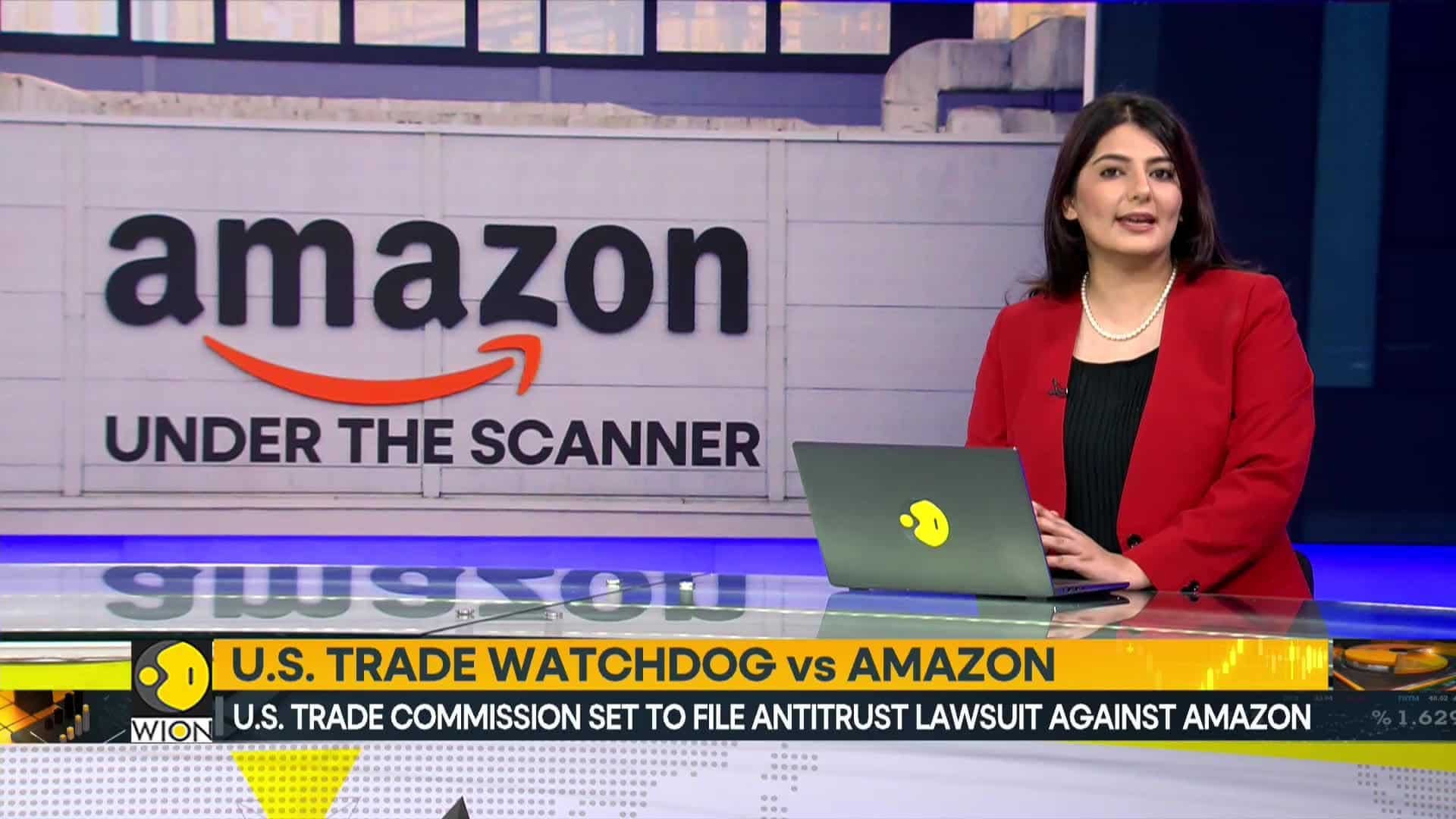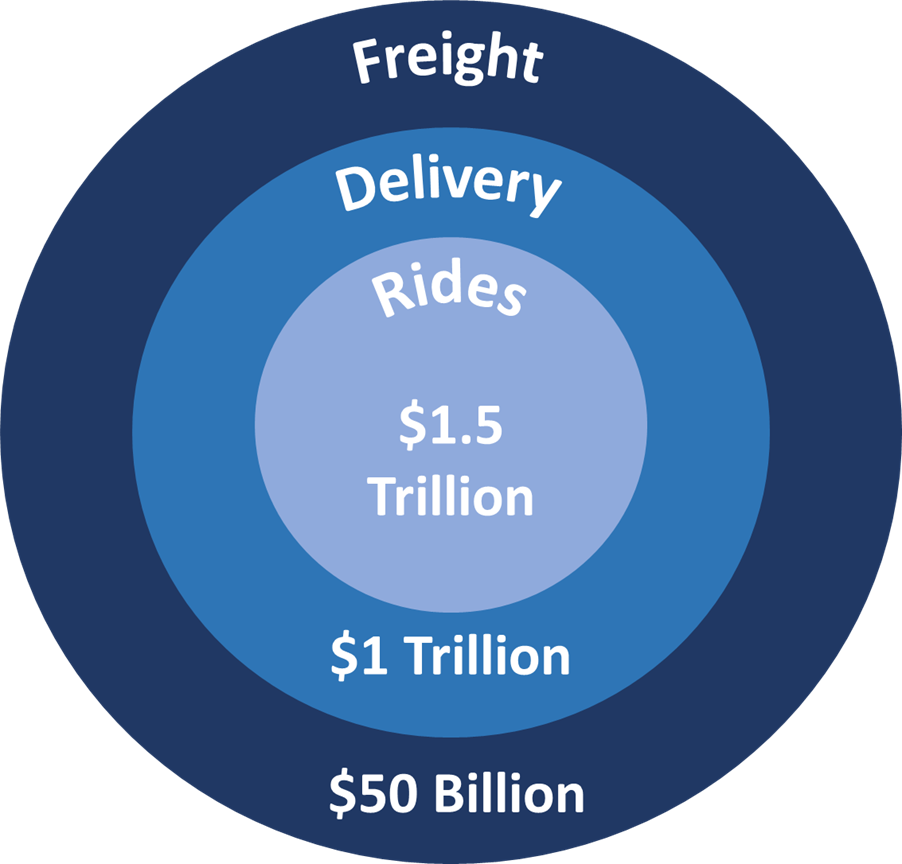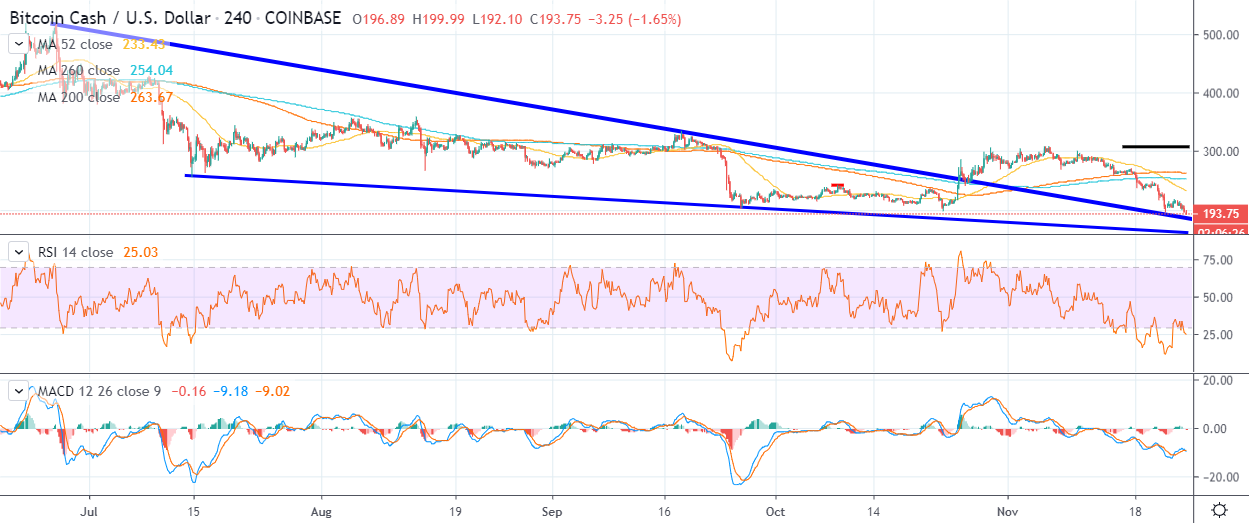Food Delivery War Heats Up: Uber's Antitrust Lawsuit Against DoorDash

Table of Contents
Understanding the Antitrust Allegations Against DoorDash
Uber's lawsuit against DoorDash centers on allegations of serious antitrust violations, painting a picture of anti-competitive behavior designed to stifle competition and cement DoorDash's market dominance. The core of Uber's claims revolves around DoorDash's allegedly monopolistic practices, including exclusionary contracts and predatory pricing.
- Exclusionary Contracts: Uber alleges that DoorDash utilizes restrictive agreements with restaurants, forcing them into exclusive partnerships that prevent them from working with competing platforms like Uber Eats. These contracts, according to the lawsuit, are designed to lock restaurants into DoorDash's ecosystem, limiting consumer choice and stifling competition.
- Predatory Pricing: The lawsuit further claims that DoorDash engages in predatory pricing, temporarily lowering its fees to drive out competitors and then raising prices once rivals are weakened or eliminated. This strategy, Uber argues, is a classic anti-competitive tactic aimed at establishing a monopoly.
- Market Manipulation: Beyond specific contracts, Uber accuses DoorDash of manipulating the market through various tactics, hindering fair competition and harming both restaurants and consumers. This could include manipulating search algorithms to prioritize DoorDash's own restaurants or using deceptive marketing practices.
Specific clauses within DoorDash's contracts with restaurants, details of which are outlined in the lawsuit, are presented as evidence of these anti-competitive practices. The potential economic consequences of DoorDash’s alleged actions are substantial, potentially leading to higher prices for consumers and reduced opportunities for smaller restaurants and delivery drivers.
DoorDash's Response and Defense Strategy
DoorDash has vehemently denied Uber's allegations, presenting its own counterarguments and a robust defense strategy. In official statements, DoorDash executives have characterized the lawsuit as baseless and insisted that their success is the result of innovation, superior service, and fierce competition within a dynamic market.
- Competitive Market: DoorDash emphasizes the competitive nature of the food delivery industry, highlighting the presence of numerous other players, including Uber Eats, Grubhub, and smaller local services. They argue that their market share is a result of offering a superior product and consumer experience, not anti-competitive practices.
- Consumer Choice: DoorDash's defense heavily emphasizes consumer choice, arguing that their platform provides customers with a wide variety of options and that their actions ultimately benefit consumers by offering convenient and affordable food delivery services.
- Innovation: DoorDash portrays itself as an innovator in the food delivery space, consistently developing new technologies and features to improve the customer experience. This narrative aims to contrast their forward-thinking approach with Uber's accusations of anti-competitive behavior.
While DoorDash has yet to file a counter-suit, their legal team is actively preparing their defense, promising a vigorous fight against Uber's accusations. The legal battle promises to be protracted and complex, involving extensive discovery and expert testimony.
Implications for the Food Delivery Industry and Consumers
The outcome of this antitrust lawsuit will significantly impact the food delivery industry and consumers alike. The potential consequences are far-reaching and could fundamentally reshape the competitive landscape.
- Consumer Prices: If DoorDash is found guilty of anti-competitive practices, it could lead to price reductions across the board, benefiting consumers. Conversely, a dismissal of the lawsuit could result in continued, or even increased, prices due to reduced competition.
- Service Quality: The lawsuit’s outcome could also influence service quality. Increased competition, potentially spurred by a ruling against DoorDash, might force platforms to improve their services to attract and retain customers.
- Restaurant Partnerships and Driver Contracts: A change in market dynamics could also alter the landscape of restaurant partnerships and driver contracts, potentially leading to renegotiated terms and improved conditions for both.
The various scenarios, ranging from forced divestiture of DoorDash assets to significant fines, all point to a potential reshaping of the market. The ultimate effect on consumer spending and choice will depend heavily on the judge's decision and any subsequent regulatory actions.
The Broader Context of Antitrust Law in the Tech Industry
The Uber-DoorDash case is not an isolated incident; it's part of a larger trend of increased antitrust scrutiny facing major technology companies. Concerns over monopolistic practices and anti-competitive behavior have led to heightened regulatory oversight and numerous lawsuits against tech giants.
- Other Antitrust Cases: This lawsuit echoes similar antitrust cases against other tech giants, including Google, Facebook, and Amazon, raising broader questions about the power and influence of large tech corporations.
- Government Intervention: The case highlights the ongoing debate regarding the appropriate level of government intervention in the tech industry. Regulators are grappling with the challenge of balancing innovation with the need to prevent monopolies and ensure fair competition.
- Future Antitrust Enforcement: The outcome of this case will likely influence future antitrust enforcement in the tech sector, setting precedents for how regulators approach allegations of anti-competitive conduct in the rapidly evolving digital marketplace.
Conclusion: The Food Delivery War Rages On: What's Next?
The Uber vs. DoorDash antitrust lawsuit is a pivotal moment in the food delivery war, with far-reaching implications for the industry and consumers. The allegations of monopolistic practices, predatory pricing, and exclusionary contracts raise serious questions about the competitive dynamics of the food delivery market. The outcome will not only determine the fate of these two major players but could also influence antitrust enforcement and the competitive landscape for years to come. Stay informed about the unfolding legal developments; the future of food delivery hinges on it. For further information, consult legal news sources and regulatory filings related to the case. Understanding this ongoing legal battle is crucial to navigating the evolving food delivery market.

Featured Posts
-
 Fettermans Health A Response To Ny Magazines Allegations
May 08, 2025
Fettermans Health A Response To Ny Magazines Allegations
May 08, 2025 -
 Ubers Financial Performance And Future Growth Potential
May 08, 2025
Ubers Financial Performance And Future Growth Potential
May 08, 2025 -
 Pasqyrim I Ndermitjes Psg Fiton Minimalisht Ne Pjesen E Pare
May 08, 2025
Pasqyrim I Ndermitjes Psg Fiton Minimalisht Ne Pjesen E Pare
May 08, 2025 -
 Bitcoins Critical Juncture Price Levels And Analysis
May 08, 2025
Bitcoins Critical Juncture Price Levels And Analysis
May 08, 2025 -
 Sonys Ps 5 Pro A Closer Look At The Announced Hardware And Software Improvements
May 08, 2025
Sonys Ps 5 Pro A Closer Look At The Announced Hardware And Software Improvements
May 08, 2025
